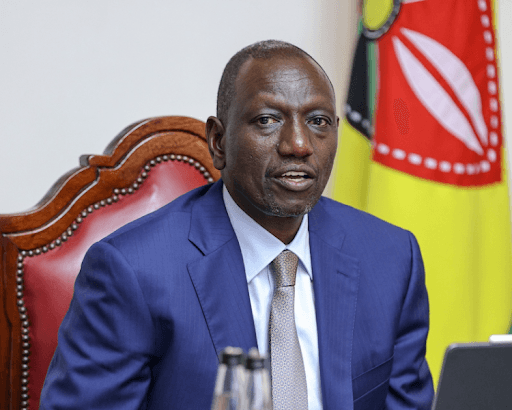

African youth and Kenyan Gen Zs, must stop idolising Western leadership models and instead focus on cultivating ethical, authentic leadership rooted in African realities, a top continental governance expert has advised.
Kingsley Moghalu, president and vice chancellor of the Kigali-based African School of Governance (ASG), urged Gen Zs and aspiring leaders to adopt homegrown solutions that reflect the continent’s unique challenges and strengths, rather than mimicking systems that don’t fit.
“Over-fetishising Western leadership styles is an aberration,” Moghalu said.
“Africa’s problems won’t be solved by foreign blueprints — they’ll be solved by African minds applying African solutions grounded in our values, experience, and context.”
He was speaking on Friday in Nairobi during a high-level governance summit organised by ASG themed “Solving the Governance Conundrum in Africa: From Riddles to Roadmap.”
Moghalu, a former Nigerian presidential candidate, said the continent doesn’t just need leaders in suits — it needs ethical, transformational leaders with vision, courage and a strong moral compass. And that begins, he argued, with education.
“We are training a new generation of African leaders through our Master's in Public Administration (MPA), fellowships, and leadership programmes,” he said.
“We teach policy, yes — but also how to lead with purpose.”
His comments as Kenya and other African nations face mounting frustrations over corruption, broken institutions and generational leadership disconnects.
Moghalu acknowledged the widespread disillusionment, especially among young people, but said cynicism won’t bring change. Instead of simply attacking state institutions, he said, young people must advocate for their reform and renewal.
“Corruption exists everywhere — not just in Africa,” he said. “The difference is how it's handled. In places where leaders are held accountable — where the law bites — people think twice before abusing power.”
He urged youth to actively challenge corrupt systems and create social pressure that makes it uncomfortable for officials to plunder public resources.
“If young people rise up against corruption or failed leadership, there will be consequences. Not immediately, but over time, those ripples lead to waves,” Moghalu said.
“In China, for example, officials behave not because they’re better than Africans — but because they know they’ll be held accountable, even face jail or worse.”
Ethics, he stressed, must be the foundation of any form of leadership, from the classroom to Parliament.
“You cannot demand high-calibre ethics from others if your own actions undermine them,” he said.
Leadership is not about holding a title,” he said.
“It’s about purpose. You can lead in your church, your school, your friend group — anywhere. But transformative leadership lifts people to a higher level, it takes measured risks, it stays rooted in integrity.”
In the age of social media and digital influencers, Moghalu cautioned youth not to confuse popularity with leadership.
“Just because someone has followers doesn’t mean they should influence you,” he warned.
“Ask yourself: is their influence building you or distracting you?”
He said part of ASG’s mission is to equip young Africans with the critical thinking skills to sift substance from noise in the digital era — and to reimagine leadership in a way that is bold, ethical and unmistakably African.
INSTANT ANALYSIS
Moghalu’s issues a wake-up call for Africa’s youth: true leadership is not imported — it’s cultivated. As Gen Zs dominate the population, the battle between borrowed influence and authentic, ethical leadership could define the continent’s next chapter.












